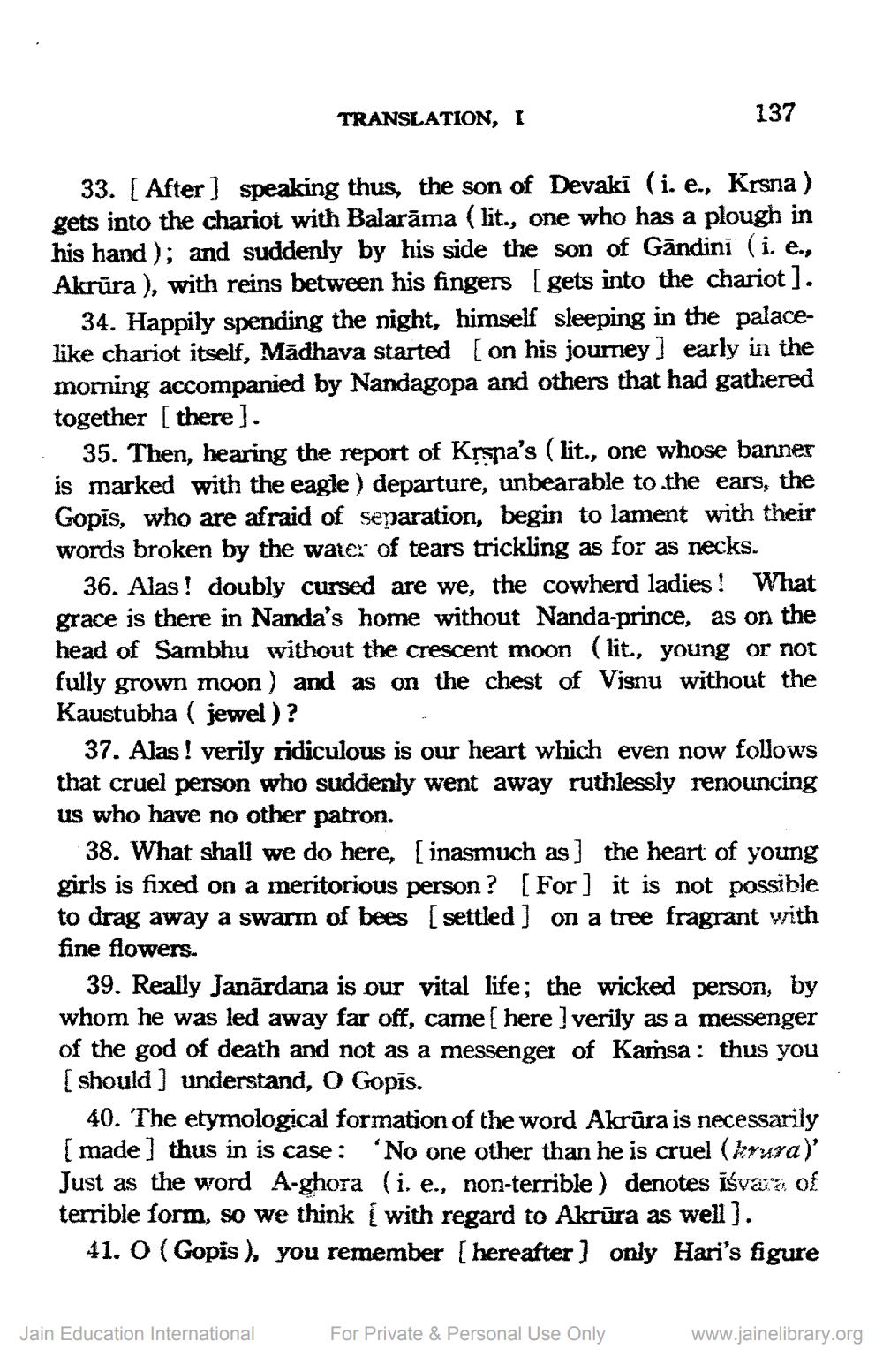________________
TRANSLATION, I
137
33. ( After ] speaking thus, the son of Devaki (i. e., Krsna) gets into the chariot with Balarāma ( lit., one who has a plough in his hand ); and suddenly by his side the son of Gandini (i. e., Akrūra ), with reins between his fingers (gets into the chariot ].
34. Happily spending the night, himself sleeping in the palacelike chariot itself, Madhava started (on his journey ] early in the morning accompanied by Nandagopa and others that had gathered together (there).
35. Then, hearing the report of Kșspa's ( lit., one whose banner is marked with the eagle ) departure, unbearable to the ears, the Gopīs, who are afraid of separation, begin to lament with their words broken by the water of tears trickling as for as necks.
36. Alas! doubly cursed are we, the cowherd ladies! What grace is there in Nanda's home without Nanda-prince, as on the head of Sambhu without the crescent moon (lit., young or not fully grown moon) and as on the chest of Visnu without the Kaustubha ( jewel)?
37. Alas! verily ridiculous is our heart which even now follows that cruel person who suddenly went away ruthlessly renouncing us who have no other patron.
38. What shall we do here, [inasmuch as ] the heart of young girls is fixed on a meritorious person? (For] it is not possible to drag away a swarm of bees [ settled ) on a tree fragrant with fine flowers.
39. Really Janārdana is our vital life; the wicked person, by whom he was led away far off, came here ) verily as a messenger of the god of death and not as a messenger of Kamsa: thus you { should ) understand, O Gopīs.
40. The etymological formation of the word Akrūra is necessarily ( made] thus in is case: 'No one other than he is cruel (krura)' Just as the word A-ghora (i. e., non-terrible) denotes īśvara of terrible form, so we think [ with regard to Akrūra as well).
41. O (Gopis ), you remember (hereafter) only Hari's figure
Jain Education International
For Private & Personal Use Only
www.jainelibrary.org




